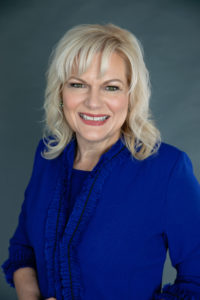
As America’s population grows older and drives up demand for long-term care, nursing centers are continuing their decades-long struggle to fill direct care positions — the qualified caregivers who meet the daily needs of residents.

The impact of COVID-19 on staff has greatly exacerbated these workforce challenges. Nursing homes must deal with staff calling out sick, the new reality of childcare and family issues, and the fear of putting their own lives at risk. At a time when care centers needed more staff to respond to the pandemic and implement social distancing measures, facilities struggled to maintain, let alone increase, the number of people available to help on the front line.
As a first step to address this crisis, Florida developed the Personal Care Attendant program, creating a pathway for individuals to gain the skills needed to become a certified nursing assistant. After an initial 8-hour training, these Personal Care Attendants work side by side with CNAs to learn how to properly care for residents.
The Personal Care Attendant program is working to identify new talent to help our state’s nursing centers meet the needs of our growing senior population. It’s also creating a pathway for those who want to make a career out of long-term care. Since the program began last March, over 2,000 individuals have joined the long-term care workforce.
Among them are individuals like Shontia Carter, a new mother who signed up as a Personal Care Attendant and advanced as a newly certified CNA at a Jacksonville care center. Shonta found tremendous value in the program, which she says allowed her to make a better life for herself and her daughter.
It’s been a similar story at an Ocala care center for Alyssa Baquie, who hopes one day to become a nurse like her parents. The PCA program gave her the ability to train while earning a paycheck — something she couldn’t have done through a traditional CNA program, which was financially out of her reach.
Critics claim this innovative program diminishes quality in our state’s nursing centers, citing the reduced training these individuals receive. But what they fail to understand is that besides this initial training, Personal Care Attendants must show competence in their skills before they can deliver hands-on care.
Both nurses and CNAs train and mentor these individuals, who work with an entire team as they get to know the residents’ likes, dislikes and specific care needs. After four months of on-the-job training, each Personal Care Attendant must test to be certified as a nursing assistant or shift to a position that no longer provides direct resident care.
Not everyone is cut out for caregiving, and those who can provide this level of personal care are extraordinary people. Residents rely on these individuals to keep them safe and well cared for, and the dedicated caregivers strive to treat residents with dignity and respect.
Personal Care Attendants are helping to make a meaningful impact for residents in our care centers. But unless the Legislature acts this session, the program will expire with the COVID-19 State of Emergency. Bills to make the program permanent – Senate Bill 1132 by Sen. Aaron Bean and House Bill 485 by Rep. Sam Garrison – have been filed, and the Florida Health Care Association believes this is another smart solution to help our nursing centers move forward from the pandemic.
COVID-19 has taken a physical and emotional toll on our healthcare heroes in long-term care. Now more than ever, we need to redouble our efforts with initiatives that can help strengthen our workforce. By making the Personal Care Attendants program permanent, this legislation is a good first step to resolve this crisis and give seniors the care they expect and need, today and into the future.
Deborah Franklin is senior director of quality affairs for the Florida Health Care Association, the state’s leading long-term care association. She has more than 30 years’ experience operating skilled nursing and assisted living facilities and helps to oversee FHCA’s workforce initiatives.





